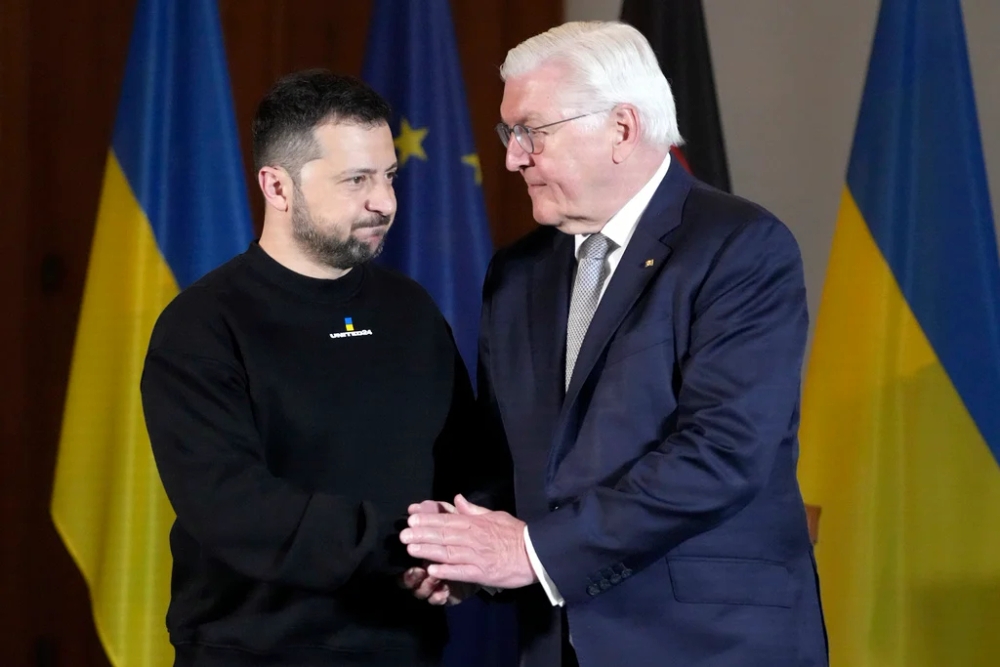Germany's Political Shift and Its Impact on Ukraine's War Effort
Published
- 3 min read

Germany’s Political Realignment and Its Stakes for Ukraine
The political upheaval in Germany following the collapse of Chancellor Olaf Scholz’s coalition government is a pivotal moment for Europe, particularly for Ukraine. As Berlin prepares for early elections in February 2025, the potential ascension of the Christian Democratic Union (CDU) under Friedrich Merz offers both opportunities and challenges for Ukraine amid its continued resistance against Russian aggression.
A Hawkish Stance on Russia
Friedrich Merz’s leadership brings the promise of a firmer stance on Russia, which could translate into increased military aid for Ukraine. Germany has already established itself as one of Ukraine’s most significant European allies, providing over €11 billion in military support since the onset of the war. Merz’s advocacy for sending German Taurus cruise missiles to Ukraine signals his commitment to bolstering Kyiv’s defense capabilities—a marked departure from Scholz’s cautious approach.
Challenges of Fiscal Conservatism
Despite Merz’s hawkish foreign policy, Germany’s constitutional debt brake imposes stringent limits on government spending. This creates significant obstacles for any prospective administration aiming to maintain or increase aid to Ukraine. A Merz-led CDU government might explore reforming the debt brake, redirecting funds from other sectors, or instituting a special fund dedicated to Ukraine—a mechanism used by Scholz during his tenure. However, these measures require political capital and public support, both of which remain uncertain.
Transatlantic Dynamics and European Unity
Germany’s political transition comes at a critical juncture for transatlantic relations. With the possibility of Donald Trump returning to the White House, European nations may face reduced U.S. military support for Ukraine. This uncertainty underscores the importance of Germany’s leadership in maintaining European unity. Furthermore, domestic instability in France threatens to weaken the Franco-German alliance, a cornerstone of EU policy coordination.
Merz’s potential leadership could mitigate these risks by offering a more predictable and decisive approach to supporting Ukraine. However, ensuring sustained European solidarity will require deft navigation of domestic and international pressures.
Implications for Russia and Peace Negotiations
From Moscow’s perspective, any signs of Western disunity or hesitation could strengthen Vladimir Putin’s resolve to prolong the conflict. The Kremlin appears to be betting on a fracturing of Western resolve, banking on political and economic fatigue in supporting Ukraine. A unified German government under Merz, with a clear commitment to Ukrainian sovereignty, would send a strong message to Moscow about Europe’s long-term dedication to countering Russian aggression.
However, challenges remain. With ongoing troop shortages and strained morale among Ukrainian forces, the battlefield dynamics may influence the willingness of both sides to engage in meaningful peace talks. Germany’s role in shaping these discussions, particularly under new leadership, will be critical in ensuring that any negotiations do not legitimize Russia’s invasion.
The Road Ahead for Berlin and Kyiv
Germany’s upcoming elections represent a crossroads not only for its domestic politics but also for its role as a European leader. While a CDU-led government under Merz offers potential benefits for Ukraine, the path forward is fraught with fiscal and political challenges. Kyiv will be closely monitoring Berlin’s decisions, aware that Germany’s support is crucial for maintaining Western unity and deterring Russian advances.
As Ukraine braces for another winter of conflict, its leaders will hope for a seamless transition in Berlin that reinforces European resolve. Whether the elections bring greater predictability or new uncertainties, Germany’s political trajectory will profoundly shape the future of Europe and the outcome of the war in Ukraine.
